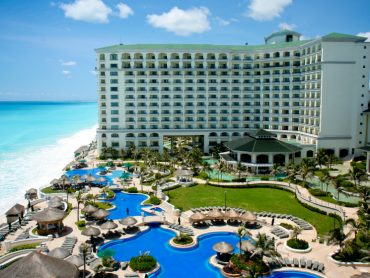Maslow’s Hierarchy of Hotel Expectations
If you’re looking for a good standard by which to evaluate your guest service priorities, or if you’re simply looking for inspiration, you need only scroll through any basic management, human resources or motivation psychology textbook. Look up Maslow’s Hierarchy of Needs, a highly referenced and diagram-friendly developmental psychology theory. Or better yet, just give the Wikipedia page a cursory glance.
Interestingly, we can use Maslow’s principles to detail hotel guest behavior in terms of what their basic expectations will be and how they will act when certain expectations aren’t met. From there we can distinguish what services or hotel features will be seen as fundamental rights versus which will be seen as value-added, loyalty-building drivers. This all makes for a fun, little exercise of transforming Abraham Maslow’s 1943 groundbreaking research paper into Maslow’s Hierarchy of Hotel Expectations circa 2012.
Start by reviewing the hierarchy diagram, which has five generalized levels outlined in a pyramid with the base being the most important, and hence the biggest in terms of area. Next, evaluate your hotel’s reviews from past customers (both from internal surveys and from third-party sites) to see how their points of criticism and praise line up with the five tiers of the Maslow pyramid. Take special care to note the emotional subtext of each review, particularly those that identify elementary faults in your operations.
My hypothesis is that any severe denigration you receive will be a direct result of errors made on the bottom end of the pyramid. As these mistakes pertain to more basic needs – those assumed to be necessities – the criticism against such errors will be especially loud and harsh. This is in contrast to the upper layers of the pyramid where derision gradually morphs into praise. However, judging purely from the area given to each portion within the diagram, it’s clear that such upper echelon exaltations will not be perceived with the same magnitude of importance as a lower level condemnation.
Therefore, this motivation theory model can be used as an excellent framing tool to understand consumer mindsets, to determine what aspects of your operations are most critical to improve and to develop a concrete order of priorities. Satisfy guest needs in accordance with the pyramid by building from the ground up. And so, we begin our analysis at the bottom and most critical layer for you to master.
Physiological Needs
At the base of the pyramid is the need for such rudimentary aspects of sustaining life such as food, breathing (air quality), water and sleep. Even at this primal and thoroughly understood level, there are still numerous questions by which to scrutinize your current operations.
Are your guests getting a good night’s sleep? Do your lobby and guest rooms smell weird? How’s the tap water that comes out of the bathroom faucet? Is it clean, clear and flowing properly? Do you overcharge for bottled water? And most importantly, is your food edible? Never underestimate just how crucial it is to master all aspects of this basal tier. You only stand to lose if you’re not flawless here.
The quintessential function of a hotel is to give patrons a bed so they’re chipper for the next day. If this can’t be done, then it’s a failed mission. Recall how you felt the last time you had a sleepless night. Irritable, bellicose, maybe even slightly delirious? In such a mood, a guest has a much greater propensity towards a negative evaluation. I’m not insinuating that every bed needs to have a triple-down comforter and thousand thread-count linens. Instead, stick to the basics. Is the room loud at night? How can you dampen the noise? Are the bed sheets and duvet perfectly clean? As you can see, any hint of bedbugs, or the risk of an infestation is a non-starter.
Next, very few people will comment on how fresh the air in the lobby was, but if the room smells – for example, of tobacco smoke – be ready for damage control. Bad smells are a primal, subconscious indicator associated with the fear centers of the brain and impending danger – not exactly the feeling you want to evoke! The culprits here can range from spoiled food to rotten plumbing. If it’s the latter, don’t be stingy on maintenance. The stench of putrid pipes will render such a room unusable. Furthermore, try adding a subtle but distinctive fragrance to instill positive feelings – fresh flowers or potpourri will do.
Overcharging for bottled water is another qualm I see fairly often in online reviews. When lensed through the hierarchy model, it’s easy to see why this action enrages guests. Clean water is something so critical to our body’s survival that it’s expected to readily available and nominally charged. To leverage this necessity improperly will be viewed with scorn.
Cuisine, I believe, is a topic that bridges several layers of the pyramid, but for this instance, you have to look at it not as art but as meeting a patron’s metabolic requirements. No doubt your food can be consumed for energy, but does it taste and ‘look’ edible? Red flag any reviews you come across where the word ‘inedible’ is used. Ensure that the fundamentals are maintained: meats are cooked but not overdone and all hot dishes are actually hot when served, to name two.
Also, be aware that people eat with their eyes as much as they do their mouths and noses; presentation matters just as much as taste. Bright primary colors look more appetizing than browns, deep purples or charred blacks. Note how one of the first markers of spoilage is a foodstuff losing its vibrant color and texture.
Safety Needs
The second stratum involves more cognitive aspects of one’s life dealing with personal health, shelter and security. Like the more intimate physiological needs, there are many questions to pose. How secure is your hotel? What about the neighborhood? How safe are the rooms? Are the elevators secured, or the floors secured with key card access? Does each room have a safe? Are there any safety hazards that should have proper signage or be removed entirely? Are there any apparent health risks? As it pertains to a guest’s immediate family, are the grounds safe for children? Are your staff members trained to deal with kids and elderly guests?
As you can tell, security is a complex issue. Look at it through the pyramid and you’ll understand that much like physiological needs, personal and familial safety is a matter that serves to do more harm than good. Safety is peace of mind. When it’s infringed, it’s an excuse for bad press, or even a lawsuit.
I have little doubt that you, as a manager, take this matter lightly. Most security systems work and are frequently reassessed. However, a lot of these features don’t have any ‘presence’. What I’m insinuating here is security theatre – the front-end rather than the back-end. For instance, a camera hangs from a blatant vantage point overlooking a parking garage. Is it in plain sight to warn and ward off potential criminals or to catch them in the act? If the camera’s only purpose was the latter, then it would have been hidden.
To satisfy guest concerns, analyze your safety measures from a pragmatic as well as a visual point of view. The camera is a blunt example, but security theatre can be much more subtle. The presence of a doorman, valet and exterior staff fit this paradigm, instantly reassuring guests with a warm smile and helpful hands. This also goes for the attentive staff member whose domain is the elevator. On the other end of the spectrum, loose wires running along a corridor’s baseboards will likely never spark an electrical fire, and yet their mere presence is enough to set off the warning sirens in one’s mind.
The need for quality cuisine rears its head again at this level. I address it twice for similar reasons because it’s just that important! Aside from food being edible, does it pose a health risk? Do you offer a menu with a full array of healthy choices (as well as a few savory indulgences)? Are there any allergic concerns that should be made explicit on the menu? Is your food prepared in a clean, germ-free environment? How do you source your ingredients? Do you emphasize your quality control methods? Again, you only stand to lose by neglecting these worries.
The primary concern I see cropping up here is food poisoning. In the unlikely event that this does happen, steps must be taken immediately to placate the victim, or else you run risk of creating an enemy. You may not actually be at fault, but if you are blamed, that’s what other online shoppers will read about. What sort of crisis communications protocol do you have to handle these sorts of situations? How would you respond to someone who posts online, claiming that this happened them at one your restaurants? Even though you’ve likely lost the food-poisoned patron forever, what would you publicly say to comfort other guests?
Social Needs
As we cross the midway point, we begin to deal less with the bare necessities and more with true emotional fulfillment. People need to feel as though they belong. We’re no longer meeting the expectation of not doing harm but satisfying a guest’s need for an enriching environment. Errors at this level are far more subjective and highly dependent on each person’s individual experience. The most suitable word for success at this level is warmth, although friendliness, attentiveness and acceptance also apply.
As you can tell, a hefty chunk of this pertains to the degree of compassion extended by your staff to your guests. Although this is paramount for quality guest services, it’s also wholly apparent and part of any proper hotelier training. Guests expect professionalism.
Rather, think more about the physical presence of your hotel. When the guest arrives, what is the atmosphere of the exterior? Is it warm and inviting? Does the lobby match this feeling? Does the lighting provide for an intimate, relaxing atmosphere? From a meetings perspective, what social features does your space provide to enhance productivity?
Your F&B choices also bridge this territory, but reflect on your cuisine more in terms of the social experience. What’s the atmosphere like in your restaurants? Do your staff members make people feel at home, or do they make patrons feel inferior? What’s the standard procedure for when a mistake is made? Do you offer any deals or host events to incentivize patrons and encourage a more crowded, vivacious mood?
Esteem Needs
The fourth stratum is where we transition from expectations to value-added features, although the line between the two is blurred and exceedingly subjective. Instead of merely fulfilling a guest’s need for belonging, esteem deals more with reputation and importance. We’re moving away from satisfaction towards indulgence.
In terms of importance, how can you make your guests feel like VIPs? Do you attend to individual requests promptly and with care? How do you make people feel as though you value and appreciate them choosing you?
In terms of reputation, are your guests proud to stay at your hotel? Is it something to brag about? How do you reward your loyal customers to demonstrate that this is a mutual feeling?
Self-Actualization Needs
The expectations at the apex of the pyramid are the hardest to attain and also the most mercurial. Maslow delineated the summit as pertaining to the motivators for someone to achieve his or her personal best. So, how can your hotel facilitate this? If you operate in a downtown area that caters to business clientele, what can you do to ensure that every guest is maximally productive? If you operate in a resort or retreat locale, what services do you offer and what minor touches do you add to ensure that each visitor is fully relaxed and entertained?
Self-actualization also comes from creating new experiences for the guest. An example: providing the guest with an opportunity to learn about the ecological environment of the property with complimentary guide books and binoculars, offering a guided hike of the local area or classes with the chef. Even a bar with several hundred different scotch whiskeys and a knowledgeable bartender could form the basis of a self-actualizing activity. It is these types of ‘wow’ activities that a guest recalls years later as they continue to re-actualize their previous experiences within their own mind.
Even on a subliminal level, every guest wants to be wowed. Self-actualization is the charm, the love, the unbridled happiness, the sense of harmony and the unique touch that only an experience at your hotel can supply. And only when all levels of your operations are functioning at their personal best can you deliver as such. Maslow advised that only a small percentage of people ever reach self-actualization and the same applies to hotels. Humans are curious creatures and our demand for new experiences and knowledge is insatiable. Give your guests exactly that!
The Bottom Line
To draw upon a very personal experience, my father suffered from a bout of food poisoning in the early 1980s – salmonella in the chicken from a fast food restaurant. Not only did he ban us from visiting that chain ever again, but he never ate any poultry product again, right up until he passed away nearly a decade ago. Whenever my family would have chicken, he’d remind us of his horror story, making sure to note the name of those responsible. A tad extreme, yes, but nevertheless a stern lesson in human behavior.
Never forget that we are (regretfully) fear-based creatures. We tend to remember bad experiences more so than the good ones. This is ingrained into our genetic makeup, but has served us quite well in terms of survival and proliferation. Maslow’s Hierarchy of Hotel Expectations is intrinsically tied to this principle. Satisfy all basic needs first to ensure that people aren’t afraid to visit your hotel, and then, and only then, should you move towards exceeding expectations.



